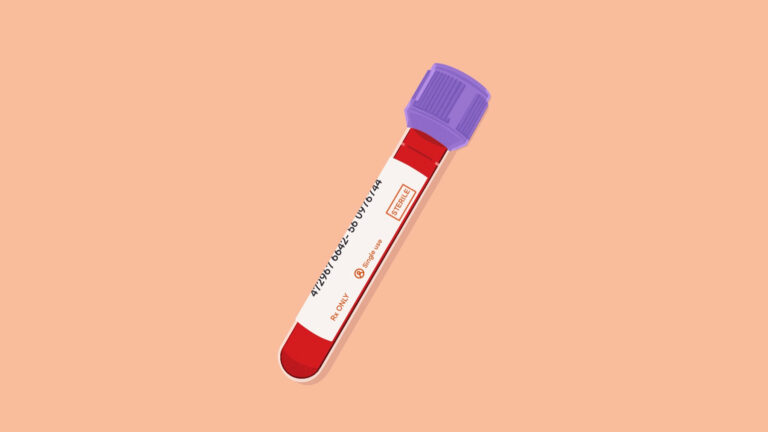Better-for-you beverages are blowing up. From functional water to no-alcohol booze, startups are vying to cash in on the trillion-dollar drinks game.
Going Flat
Highly processed foods have come to define the American diet. But now, health-conscious consumers are breaking up with Big Food. In particular, younger generations are more discerning about what goes into their bodies.
Taking a hit, sugary soda is on the decline. In 2016, cola consumption hit a 31-year low while Coca-Cola’s sales plunged over $2B during 2020, a 28% drop YoY.
Seizing the opportunity, a new wave of health- and wellness-focused brands are giving rise to functional beverages — a broad, $265B category of drinks designed for more than just quenching thirst.
Gut happy. Prebiotic soda brands like OLIPOP, Poppi, and Health-Ade are skyrocketing. Promising to aid digestion, boost immunity, and naturally detoxify, these startups deliver all the fizz and flavor of a can of pop — just a whole lot healthier.
In probiotics, tepache maker De La Calle closed $7M in February, while Humm Kombucha raised $8M last October.
H2.0. Over a third of bottled water drinkers say they’re willing to pay a premium for added health benefits.
- Sparkling water brand Liquid Death drank in $75M this January, valuing the company just north of $500M.
- Asian flavor-inspired Sanzo has grown 5x YoY for two years in a row and just secured $10M.
Over in sports hydration, performance drink maker Barcode secured $2.2M for its “better-for-you Gatorade.” Another approach, clean-label hydrating drink mixes like Liquid I.V., Hydrant, and LMNT are cashing in on this trend.
Cup of joe. Over 150M Americans drink coffee. According to Itay Shafat of Capsoil Food Tech, it’s “the perfect vehicle for added functional ingredients.”
This March, Capsoil launched its functional ingredient coffee pods, while other brands like Laird Hamilton’s Focus Coffee, Oaza, and Evexia Kafe infuse a host of wellness ingredients. Super Coffee, designed to be lactose-free and keto-friendly, raised $106M last year, doubling its valuation to over $500M.
Beyond coffee, entrepreneurs are pushing clean energy. There’s MUD/WTR, made from adaptogenic mushrooms, as well as Kyle Busch-backed Rowdy Energy, which landed $13M last May.
Entering this space, Starbucks teamed with PepsiCo on coffee fruit drink BAYA, while Molson Coors partnered with Dwayne “The Rock” Johnson on sugar-free energy drink ZOA.
Healthier hops. Down the alcohol aisle, the low/no-alcohol (NA) movement is gaining. Dry January participants who say they drank NA beers jumped 24% between 2019 to 2022.
- In March, investors poured up a $16.5M Series B for NA craft beer maker Partake Brewing.
- Athletic Brewing—which raised $50M last year and saw sales leap 430% in 2021—just launched its first light beer.
- HOP WTR launched last year to 500% growth, and plant-based Hoplark released its line of hop-infused sparkling waters.
Functional alcoholic beers are on the rise too. Hard kombucha maker JuneShine closed $24M in November, and hydrating electrolyte beer Rally has become a cyclist favorite.
Everything under the sun. Elsewhere, functional drink brands are popping up faster than consumers can drink them. There’s Kin Euphorics for relaxation, Dune for beauty, moment for meditation, and Sunwink for mood-boosting.
For frazzled minds, cannabis-infused libations are here to help destress. As CBD sparkling water brand Recess scales up, THC drink startup Cann raised $27M in February, and GT’s Living Foods launched its cannabis kombucha last year.
Rough Seas
Seeing their numbers fall, Big Soda/Food are scrambling to stay relevant, making moves in practically every category.
In particular, the functional/sparkling water and healthy hydration wars are getting heated.
- PepsiCo launched functional water brand Soulboost last year while heavily investing in its sugar-free sparkling water bubly and sports drink Gatorade Zero.
- Coca-Cola paid $5.6B for BODYARMOR hoping to rival PepsiCo/Gatorade’s lead in sports drinks; it also added sparkling water AHA and functional water Aquarius to its portfolio.
- Nestlé’s not far behind — last year, it bought hydration startup nuun and ionized water brand Essentia to fill out its functional food/beverage offerings.
Even Big Beer wants in. Corona launched vitamin D-infused Sunbrew 0.0% early this year, and Anheuser-Busch will start distributing ShineWater, a vitamin D-enriched functional water with electrolytes, antioxidants, and no sugar.
Punchline: Better-for-you beverages are grabbing market share, eroding Big Soda’s dominance. But, with so many competitors entering an ever-saturating market, it’s getting harder to break through.
For a sign of things to come, look no further than nutritional supplements. Selling a feeling, supplement makers bottle sleep, focus, and performance. As beverage brands lean in, every emotion will get its very own elixir, and sugar-laden drinks will all but disappear.
Further afield, personalized, 3D-printed drinks promise to reinvent the beverage industry as we know it.
🥬 Consumable Wellness
Set to reach $505B by 2028, the supplement industry shows no signs of slowing down. Fresh off a $115M funding round that valued the brand at $1.2B, Athletic Greens is scaling up.
On the Fitt Insider Podcast: Chris Ashenden, CEO of Athletic Greens, joined us to discuss foundational nutrition through his company’s flagship product.
We also cover: its bootstrapped-to-billion-dollar journey, a unique approach to product development, and nutrition for essentialists.
Listen to today’s episode here.
🪴 Healthy by Design
Beyond rewards or discounts, workplace wellness is being… redesigned.
Calling it quits. Burnt out workers are fueling the Great Resignation. With a return to cubicle life looming for some, a Microsoft survey found that employee well-being is top of mind.
- 50% of companies want workers back in the office full time.
- 52% of Gen Z and millennials are considering a job change this year.
- 53% of employees are more likely to prioritize well-being over work than before the pandemic.
More telling, 60% of workers say they would take a pay cut for a healthier working environment.
Upgrading the Office
To attract and retain a healthier workforce, companies are turning to biophilic design — incorporating green walls, natural light, and air purification systems into traditionally drab spaces.
To the window. Boosting health and productivity, light exposure and outdoor views are coveted among employees. Companies like Kindow offer intelligent blinds that optimize light distribution based on time of day. Absent real rays, BIOS Lighting and Samsung’s SunnyFive offer artificial alternatives.
To the wall. Improving indoor air quality and absorbing unwanted sound, living walls can transform a workspace. Here, companies like Naava and Zauben offer automated, self-watering units. Another approach, Sweden’s Hollbium created a vertical farming system for offices, providing fresh herbs and greens.
Breathing room. An invisible but crucial factor to health, the pandemic moved air quality to the forefront, and startups are moving in. While Praan purifies ambient air in cities, companies like Phylagen, AWAIR, and Clairify are optimizing indoor spaces.
Up next… Escaping the office altogether, Salesforce recently leased a 75-acre “work-and-wellness center” — a move more companies are sure to copy.
Punchline: Good health depends not only on how we live but also on where we live. From the office to hotels and homes to entire cities, the built environment is being overhauled with our health in mind.
Share this headline.
🛶 Rowing’s Rise
Connected rowing maker Hydrow added a new $55M investment, bringing its total funding to $255M.
Top of mind: As companies like Hydrow, Aviron, Ergatta, and CITYROW reimagine the old-school ergometer, we explored the Rowing Wars in Issue No. 172.
Another sign of rowing’s momentum, Hydrow is forging ahead as many at-home fitness companies correct course.
- In 2021, Hydrow reported 300% YoY growth, reaching 200K users.
- Eyeing omnichannel, the company will enter gyms and apartments, per CNBC.
- The new funding will support marketing efforts, brand building, and product innovation.
Sustainable growth. On a recent episode of the Fitt Insider Podcast, Hydrow CEO Bruce Smith said the company isn’t facing the same issues of other connected fitness companies:
“The pandemic gave some people the idea that they could spend infinitely… it’s definitely hard to watch.”
Punchline: Smith added that Hydrow is committed to being “capital efficient” as its fulfills its mission to build a lifetime brand.
⚖️ Withings x Calibrate
Connected device maker Withings is entering the $250B weight loss market through a partnership with metabolic health company Calibrate.
What’s happening: New Calibrate members get a Withings Body Pro scale upon sign-up, enabling daily weight data to be synced to a dashboard tracked by their medical teams.
Why it matters: As the weight of the world bulges, we’re in desperate need of intervention.
- In the US, 73% of adults and 35% of children are overweight or obese.
- Only 12% of Americans are considered metabolically fit.
Bigger picture: A smart deal for both companies, Calibrate’s FDA-approved weight loss platform has attracted $127M in funding since launching in 2020. Withings, meanwhile, has been rapidly building its own digital health ecosystem — and weight management is one of its specialties.
📰 News & Notes
- Oatly squeezes its supply dry.
- Nike launches think tank for girls sports initiatives.
- Strava hires Taco Bell’s digital culture architect as CMO.
- Abercrombie & Fitch steps into activewear with YPB line.
- 24 Hour Fitness extends NUTRISHOP’s shop-in-gym deal.
- Fitt Jobs: 900+ of the health & fitness industry’s top openings.
- Amazon launches vegan burger patty, McDonald’s ramps up McPlant.
- Startup Q&A: Impact Biosystems CEO Bridget Hunter-Jones on connected recovery.
- Join the team! We’re hiring a social media manager to scale distribution and growth.
💰 Money Moves
- Hydrow, makers of a connected rowing machine, raised $55M in a Series D round led by Constitution Capital, with participation from L Catterton, Rx3 Growth Partners, and others.
- Apollo Neuro, creators of a wrist-worn device that increases resilience to stress, closed a $15M Series A round at a $100M valuation.
- Health tech firm BioCoach, creators of a new metabolic health platform, secured $4M in seed funding at a $100M valuation.
- AI-powered behavioral health platform Woebot Health landed a $9.5M investment from Bayer.
More from Fitt Insider: Mental Health Goes Digital - Medical biotech company MYND Life Sciences acquired psilocybin and cannabis cultivator Tidal Psychedelics.
More from Fitt Insider: Psychedelics as Medicine - Remote diabetic patient monitoring company Glooko acquired French diabetes management platform DIABNEXT.
- PingPod, a chain of on-demand table tennis facilities, raised $10M in Series A funding led by Sequoia Heritage.
- Tender Food, maker of whole-cut plant-based meat products, closed $12M in seed funding from Lowercarbon Capital.
- Dutch indoor air quality startup Clairify closed €565K ($623.4K) in seed funding.
- Plantish, an Israeli food tech company making plant-based salmon, raised $12.45M in seed funding led by State of Mind Ventures.
- Vitamin-infused toothpaste maker Better & Better landed $4M in new funding.
- Local Bounti, a Montana-based vertical agriculture company, acquired California indoor farming company Pete’s for $122.5M.
- Bee-free honey maker MeliBio secured $5.7M in a seed round led by Astanor Ventures.
- Nectar, a digital allergy care platform, added $8M in seed funding co-led by Juxtapose and Obvious Ventures.
- Food tech company Resugar, maker of a better-for-you sugar substitute, added $3M in Series A funding.
- Revel Pharmaceuticals, developer of anti-aging therapeutics, raised $8.4M in a seed round led by Kizoo Technology Capital.
- Canadian prescription supplement platform Fullscript acquired integrative medicine platform Emerson Ecologics.
More from Fitt Insider: The State of Supplements - Alife, an AI-assisted IVF and women’s health platform, raised $22M in Series A funding.
More from Fitt Insider: The Future of Fertility Tech
Today’s newsletter was brought to you by Anthony and Joe Vennare, Ryan Deer, and Melody Song.






